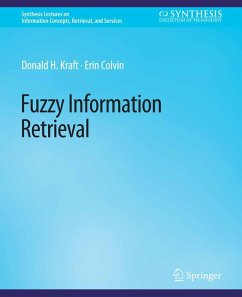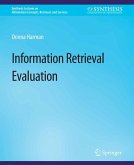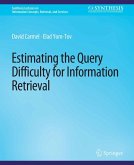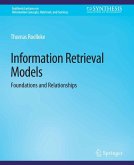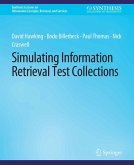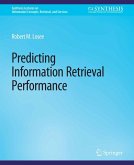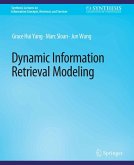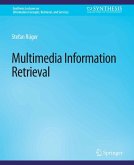Some of the classical models of IR is presented as a contrast to extending the Boolean model. This includes a brief mention of the source of weights for the various models. In a typical retrieval environment, answers are either yes or no, i.e., on or off. On the other hand, fuzzy logic can bring in a "degree of" match, vs. a crisp, i.e., strict match. This, too, is looked at and explored in much detail, showing how it can be applied to information retrieval. Fuzzy logic is often times considered a soft computing application and this book explores how IR with fuzzy logic and its membership functions as weights can help indexing, querying, and matching. Since fuzzy set theory and logic is explored in IR systems, the explanation of where the fuzz is ensues.
The concept of relevance feedback, including pseudorelevance feedback is explored for the various models of IR. For the extended Boolean model, the use of genetic algorithms for relevance feedback is delved into.
The concept of query expansion is explored using rough set theory. Various term relationships is modeled and presented, and the model extended for fuzzy retrieval. An example using the UMLS terms is also presented. The model is also extended for term relationships beyond synonyms.
Finally, this book looks at clustering, both crisp and fuzzy, to see how that can improve retrieval performance. An example is presented to illustrate the concepts.
Dieser Download kann aus rechtlichen Gründen nur mit Rechnungsadresse in A, B, BG, CY, CZ, D, DK, EW, E, FIN, F, GR, HR, H, IRL, I, LT, L, LR, M, NL, PL, P, R, S, SLO, SK ausgeliefert werden.

